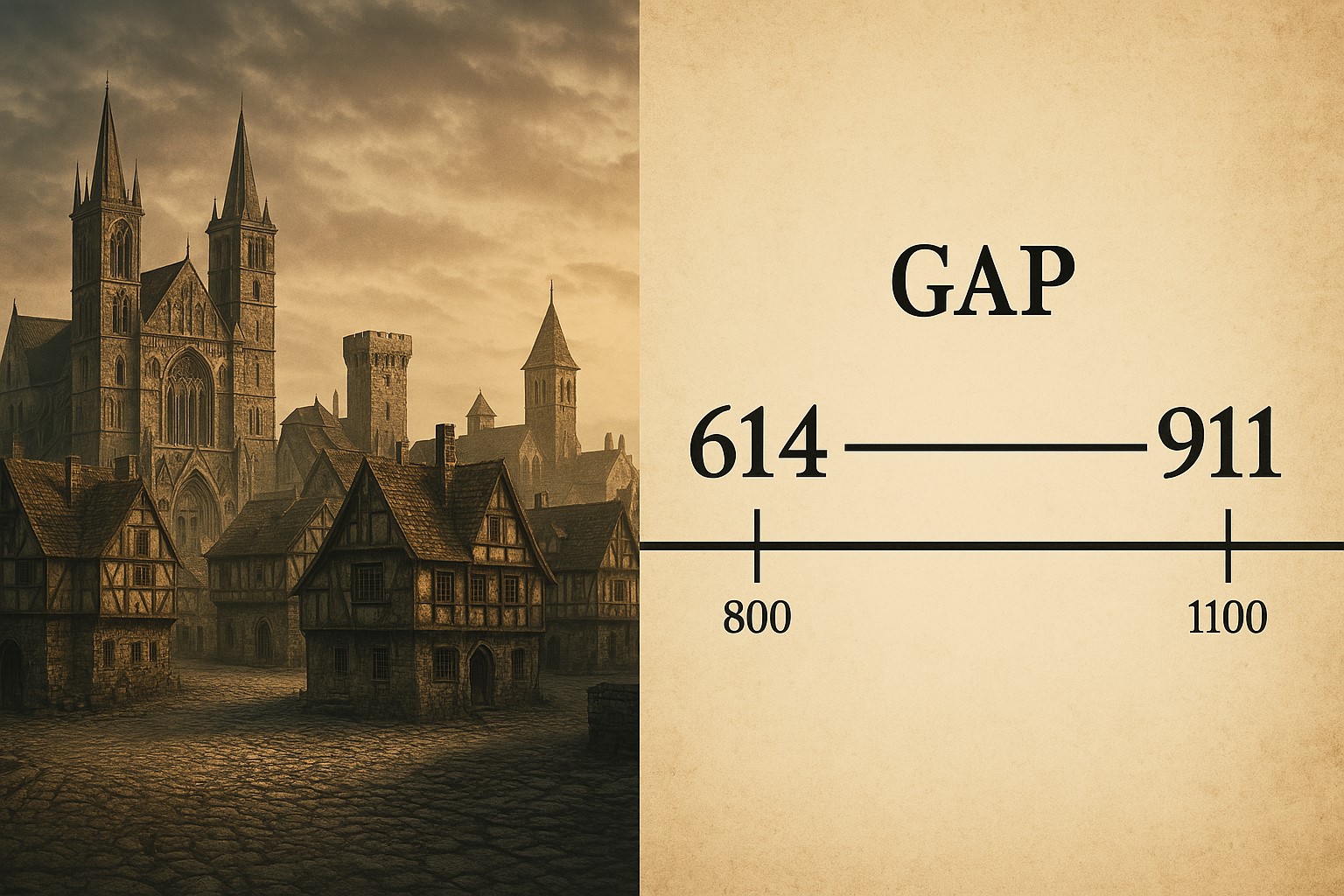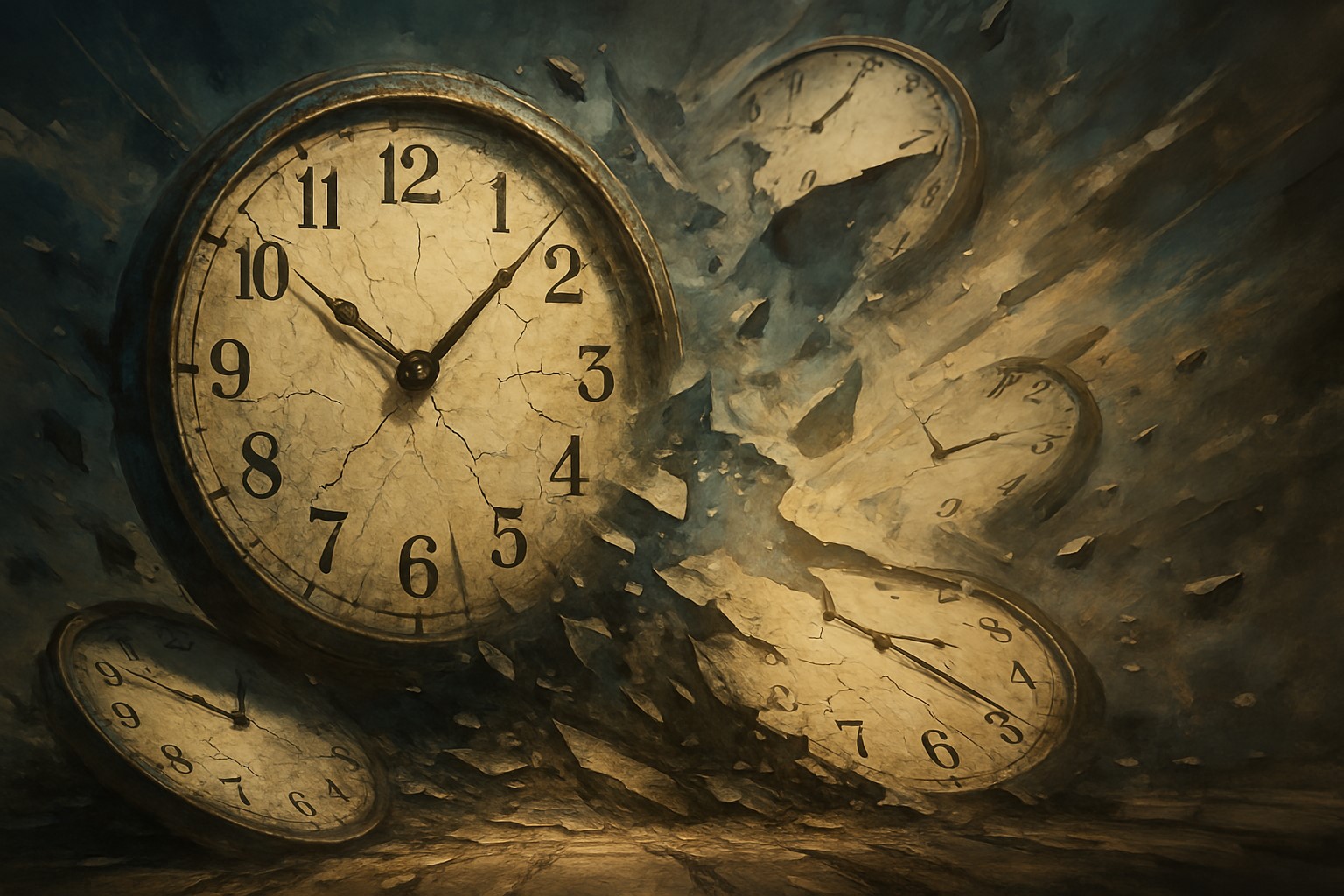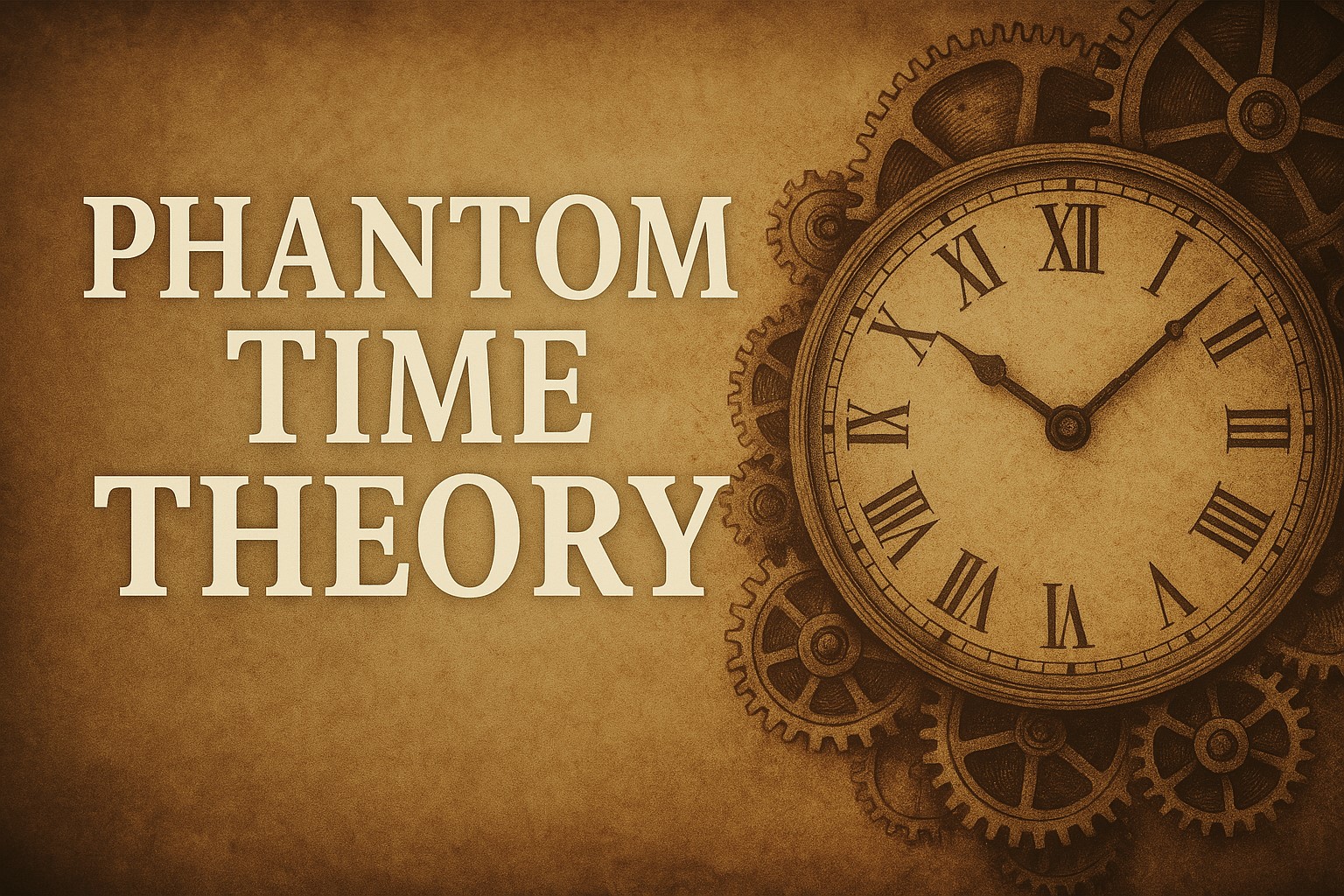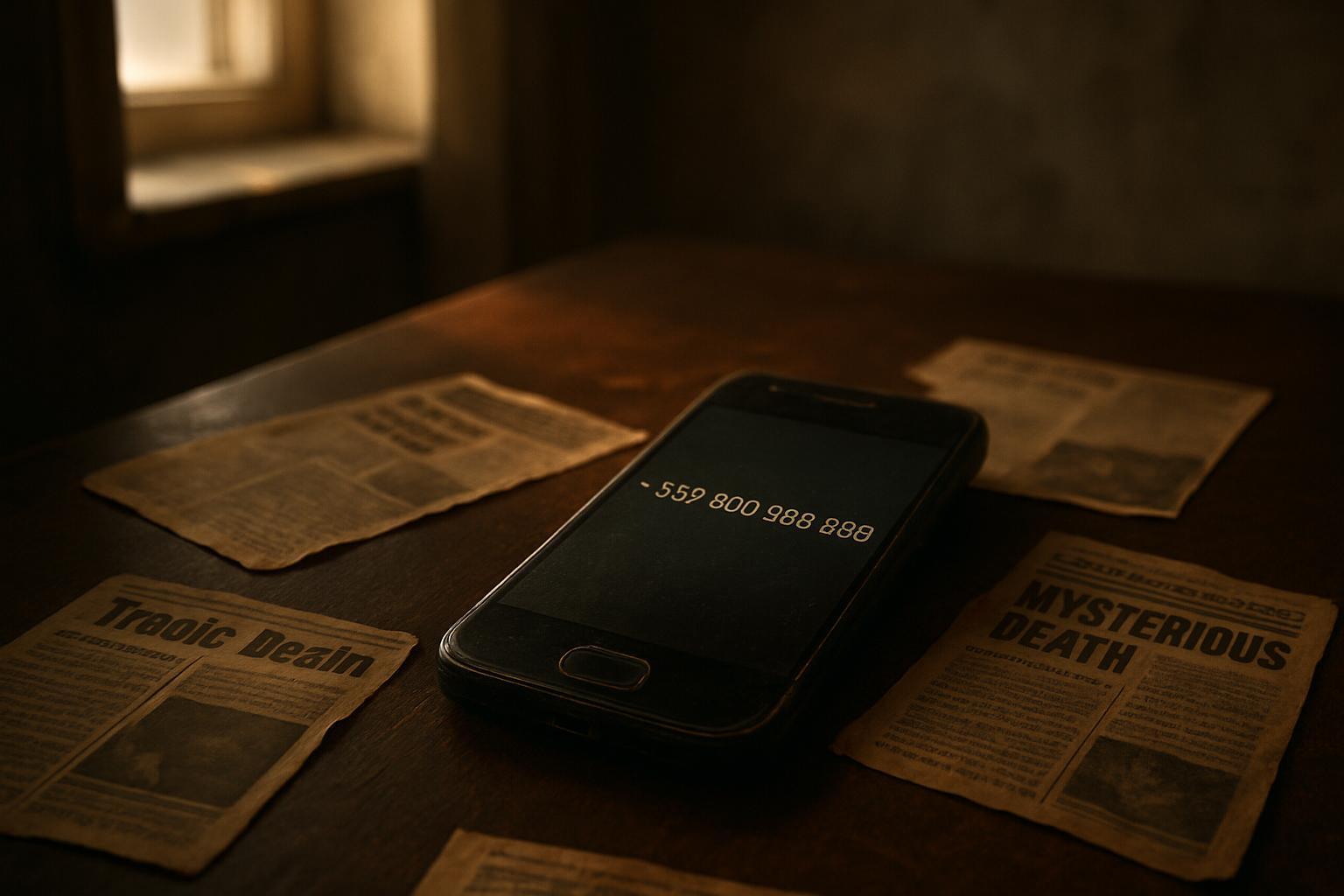Imagine if the year wasn’t 2023, but actually somewhere in the 1700s. This is the premise behind the fascinating yet controversial Phantom Time Theory. This theory suggests we’ve been living in a historical illusion. Let’s delve into this unique theory and its implications for our understanding of history.
The Origins of Phantom Time Theory
The Phantom Time Theory is largely credited to German historian Heribert Illig. In 1991, Illig proposed a radical idea: that around 300 years of history had been fabricated. But how did Illig come to this startling conclusion?
The theory rests on perceived anomalies and inconsistencies in historical records, particularly in the early medieval period. Illig believed there was a deliberate alteration of the calendar by certain prominent figures. These alterations, according to him, were made to legitimize their reigns or align certain religious events conveniently. As a result, hundreds of non-existent years were added.
Key Figures Allegedly Behind the Fabrication
Illig’s theory suggests a conspiracy possibly involving Holy Roman Emperor Otto III, Pope Sylvester II, and Byzantine Emperor Constantine VII. Supposedly, they sought to alter time records to place themselves at a more significant historical juncture, notably the prestigious “millennium year” around 1000 AD.
Evidence Supporting the Theory

To support his claims, Illig pointed to architectural and archaeological evidence. Some historical researchers argue there’s a lack of substantial architectural growth between 614 AD and 911 AD. This perceived gap in developments raises questions about what was happening during these supposed “phantom years.”
The theory also examines discrepancies within the Gregorian calendar, implemented in 1582. The Julian calendar, its predecessor, was behind the solar year by 10 days. However, Illig argues that it should have been 13 days, given its historical context. This discrepancy, he suggested, coincided with the alleged missing centuries.
Other Supporting Theories
Some historians have posited that documents and artifacts alleged to originate from this period show inconsistent dating and authenticity. Furthermore, absence of progress in astronomical observations during this era is referenced as potential evidence of timeline manipulation.
Criticisms and Counterarguments
The Phantom Time Theory, while intriguing, is not without its critics. Many historians and scholars dismiss it as pseudo-history, largely due to a lack of credible evidence. They argue that historical records, when considered in their entirety, do not support the existence of fabricated time.
Archaeological findings and dendrochronology (tree-ring dating) provide a continuous and corroborative timeline. These methods have dated many events and artifacts to the so-called “phantom years,” challenging claims that these years didn’t exist.
Calendrical Concerns
In defense of historical consistency, scholars cite the alignment of different calendars in separate cultures that maintained accurate records through this timeframe. The Byzantine calendar, Chinese historical records, and Islamic history all depict a consistent chronological sequence that doesn’t support time alteration theories.
Potential Implications of Phantom Time

If the Phantom Time Theory were true, our historical perspective would undergo drastic shifts. The timeline of known events would be challenged, potentially altering the significance and context of pivotal historical, religious, and scientific milestones.
This could include recalibrating the timeline of events like the Renaissance, the Age of Enlightenment, and numerous scientific discoveries. It would demand a rewrite of many aspects of human history, affecting educational curricula worldwide.
Cultural Impact
The theory would influence cultural identity, as people re-evaluate ancestry paths. National histories could shift, prompting questions about traditions thought to stem from specific periods. Such existential shifts would have broad repercussions on how individuals and societies self-define and shape their historical narratives.
The Philosophy of Time and Reality
While the Phantom Time Theory might seem outlandish, it tugs at deeper philosophical questions about time and reality. Human understanding of time has evolved through civilizations, illustrating its subjective nature.
Our historical perception is essentially a narrative constructed from surviving records. If these records are flawed or manipulated, it opens a dialogue on the rigidity and malleability of historical truths. Modern thought is increasingly open to questioning established narratives, inviting reevaluations of what is considered factual.
Human Perception and Memory
This theory also invites reflection on human memory and its reliability. Collective memory, like individual memory, is prone to distortions, influenced by biases, cultural perspectives, and limited available data. Recognizing these influences encourages a broader, more critical engagement with historical narratives.
Modern Curiosity and Conspiracy Theories
In today’s digital age, conspiracy theories can spread widely and quickly. The Phantom Time Theory is one of many that capture the imagination. Its controversy stems from its potential to challenge accepted truths. The allure of alternate histories reflects a human desire to explore the unknown and question authority.
Such theories thrive on the internet, where information sharing expedites widespread curiosity. In examining these theories, it becomes crucial to distinguish between imaginative exploration and factual skepticism. Curiosity-driven exploration encourages learning, but without critical analysis, it risks devolving into misinformation.
The Role of Media and Film
Movies, documentaries, and literature often explore alternate histories. This echoes public interests while capitalizing on intrigue. These activities create platforms where ideas like the Phantom Time Theory are dissected, debated, and popularized, feeding into the broader cultural discourse on what is known versus what is believed.
Reflecting on the Phantom Time Theory
Though widely debunked by experts, the Phantom Time Theory remains a testament to the human thirst for inquiry and understanding. By challenging accepted narratives, this theory, and others like it, serve as reminders of the ever-evolving nature of history.
Whether seen as fact or fiction, the Phantom Time Theory offers more than just a historical puzzle. It invites us to reassess how we perceive time, identity, and reality, encouraging an appreciation for the rich complexity of history.




